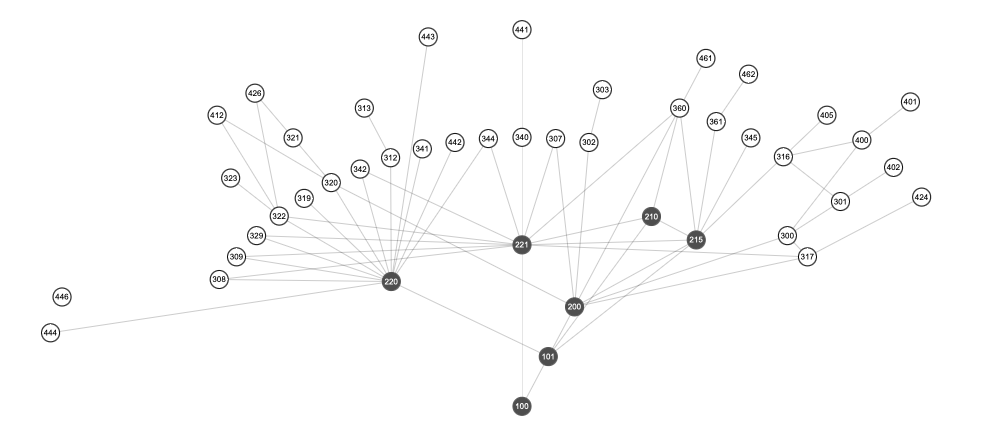MATH 100
Differential Calculus with Applications
Introduction to differential calculus for science and engineering. Course design includes weekly 2-hour large lectures and 1-hour small classes for active learning with group worksheets. Course work includes group projects, online homework and exams. See Course Outline 2025W1 for more info. Check out the CLP Textbook for notes, exercises and examples.

MATH 210
Introduction to Mathematical Computing
Introduction to mathematical software and numerical methods. Basic computer programming including numbers, arrays, functions, vectorization and iteration. Sequences and series, root finding, numerical integration, numerical methods for differential equations, systems of linear equations, eigenvalues and mathematical graphics. See Course Outline 2024W2 for more info.
Web-based open source computational resources are at the core of the course design. Students login Syzygy whenever and wherever they choose and write Python code in Jupyter notebooks using their own devices. Lectures are live-coding events in which students applied programming to standard numerical methods in mathematics. Check out Mathematical Python for examples and exercises.

MATH 307
Applied Linear Algebra
Linear systems of equations, LU decomposition, condition number, orthogonal projection, QR decomposition, least squares approximation, orthogonal diagonalization, singular value decomposition, discrete Fourier transform. Applications: interpolation, data fitting, principal component analysis, digital signal processing. Matrix computations with mathematical software Python, SciPy and Jupyter. See Course Outline 2025W1 for more info. Check out MATH 307 Course Notes for notes and examples.

MATH 441
Discrete Optimization Problems
Project-based course which emphasizes mathematical research, communication, collaboration, computation and reflection. Students collaborate on group projects which explore real-world applications of linear programming, combinatorial optimization and convex optimization. See Course Outline 2024W2 for more info.

Mathematical Python
Mathematical Python is a web-based open textbook on mathematical computing with Python, SciPy and Jupyter. The book consists of 25+ Jupyter notebooks covering markdown and LaTeX, basic Python programming, NumPy, SciPy and Matplotlib, optimization, numerical integration, linear systems equations, eigenvalues and eigenvectors, and ordinary differential equations.

MATH 360
Introduction to Mathematical Modelling
New course co-created with Prof. Lindsey Daniels. Designed as a flipped classroom with prelecture activities in Jupyter notebooks and custom course notes built with Jupyter Book. The course explores deterministic, stochastic and data-driven models including systems of ordinary differential equations, probability distributions, kernel density functions, linear and logistic regression. The course develops a systematic approach to mathematical modelling following the modelling process with strong emphasis on computational methods for simulation and visualization. Check out ubcmath.github.io/MATH360.

Course Map
Interactive data visualization of the undergraduate mathematics program at UBC built with D3. Students navigate course prerequisites and program requirements. Check out ubcmath.github.io/coursemap to explore the map.

CTLMath
Computational Teaching and Learning in Mathematics (CTLMath) is an organizational framework for teaching and learning with open source mathematical software and web-based ocmputational resources. See Python for UBC Math and MATLAB for UBC Math for examples of computation in math courses at UBC. Check out BIRS Workshop for more examples and resources.

mbgrader
mbgrader (math batch grader) is a custom web application for batch grading MATLAB assignments. The application is built with Python and Flask, SQLite and BackboneJS. The application reads m-files, searches for values attached to particular variable names and groups similar values together into batches. Grader does not need to have solutions instead mbgrader allows graders to provide thoughtful, individualized feedback to students since all responses are reduced to a small number of batches per question. Check it out on GitHub.









